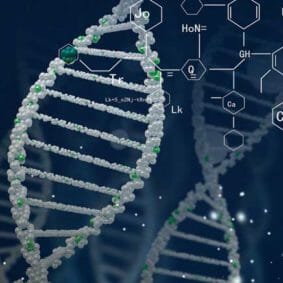June 5th, 2018 by Attorney Dan Carman

DNA evidence is considered by some to be the gold standard for criminal cases. DNA is the unique, genetic information each one of us carries. But we not only carry it, we shed it with our hair, sweat or dead skin. If one person gets it from you, it can pass to an object or another person. A California murder case discussed by the Marshall Project illustrates the problem.
Lukis Anderson was in custody for six months before being released, held on suspicion of taking part of a break-in and robbery that left a victim dead. Anderson was not a model citizen. Before being charged with murder, the 26-year-old homeless alcoholic with a long criminal record spent his days hustling for change in downtown San Jose. The murder victim, Raveesh Kumra, was a 66-year-old investor who lived in a 7,000-square-foot mansion, ten miles and a world away.
About midnight on November 29, 2012, a group of men broken into Kumra’s home. They tied him up, blindfolded him and gagged him with duct tape. They found his companion, Harinder, asleep in an upstairs bedroom, hit her on the mouth and tied her up next to Kumra. Then they sacked the house for cash and jewelry.
After the men left, Harinder managed to free herself and called the police. They arrived and an ambulance followed them. One of the paramedics declared Kumra dead. The coroner determined that he suffocated to death because of the duct tape.
Three-and-a-half weeks later, police arrested Anderson. His DNA had been found under Kumra’s fingernails. The police theory was that the two struggled as Anderson tied him up. Anderson had no memory of committing the crime.
That’s because he didn’t do it. Though it took months of investigation to unravel the mystery, it appears that the paramedic who declared the murder victim dead had earlier in the day picked up Anderson inside a store after he passed out from drinking too much. Anderson was taken to the hospital, and his records showed that’s where he was at the time of the murder.
Researchers have found that your DNA can appear on objects you never touched, known as “secondary transfer.” In one experiment, volunteers shared a container of juice. It was touched by each of the participants at least once and their DNA was found on the handle in almost every case.
- The volunteers never touched each other, but one-third had another’s DNA on their palms.
- One-third of the glasses used had DNA of volunteers who didn’t touch them.
- There was also other DNA found from people who weren’t involved in the experiment. It was discovered on about half the chairs and glasses, on the participants’ hands and the table.
- The participants unknowingly carried with them genes from others they were in contact with directly or indirectly, whether they kissed them, held the same safety grip on a bus or used a coffee cup handed to them by another.
It’s been estimated that the average person may shed upward of 50 million skin cells a day; we also spew saliva when we talk and sneeze. All these substances contain our DNA.
Tools used by police are becoming more sensitive, making it easier to find DNA and link it to an individual. But police are only starting to grapple with the issue of secondary DNA transfer. Often when police have some evidence indicating a person may be involved in a crime, they’ll be biased toward finding additional evidence confirming that the suspect committed the crime. They won’t try to find, or they’ll ignore, evidence showing the suspect’s innocence.
In Anderson’s case, the evidence proving his alibi didn’t come from a high-tech criminal forensics lab — it was hospital records showing his presence there when the crime occurred. Other documents showed Anderson and Kumra had the paramedic in common that day. Anderson’s attorney was able to show his client couldn’t have committed the crime, despite his DNA being found on the victim’s body. Charges against him were dismissed.
If you or a family member is facing criminal charges, you need a criminal defense attorney who can protect your rights and your future. Contact us today so you can discuss your situation with one of the attorneys at the Lexington, Kentucky-based Carman Law Firm. As criminal defense attorneys with years of experience, we offer thorough, experienced representation.

 Focusing on criminal matters, Mr. Carman is admitted to practice law in all Courts of the Commonwealth of Kentucky, the United States District Courts for the Eastern and Western Districts of Kentucky, and the United States Court of Appeals, Sixth Circuit. He is a member of the American, Kentucky, and Fayette County Bar Associations. Mr. Carman also worked as a prosecutor, as well as a legal assistance attorney. Attorney Dan Carman can help you with any criminal defense matters you may need including; DUI, drug, and weapons charges, trespassing, traffic violations and more. [
Focusing on criminal matters, Mr. Carman is admitted to practice law in all Courts of the Commonwealth of Kentucky, the United States District Courts for the Eastern and Western Districts of Kentucky, and the United States Court of Appeals, Sixth Circuit. He is a member of the American, Kentucky, and Fayette County Bar Associations. Mr. Carman also worked as a prosecutor, as well as a legal assistance attorney. Attorney Dan Carman can help you with any criminal defense matters you may need including; DUI, drug, and weapons charges, trespassing, traffic violations and more. [